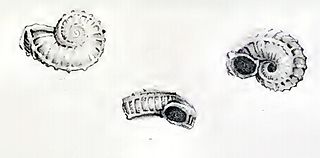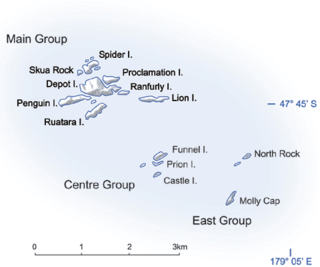Dentalium suteri is a species of tusk shell, a marine scaphopod mollusk in the family Dentaliidae.
Tugali suteri is a species of small sea snail or limpet, a marine gastropod mollusc in the Family Fissurellidae, the keyhole limpets and slit limpets.
Munditia anomala is a minute sea snail, a marine gastropod mollusc in the family Liotiidae.
Munditia aupouria is a minute sea snail, a marine gastropod mollusc in the family Liotiidae.
Munditia delicatula is a minute sea snail, a marine gastropod mollusc in the family Liotiidae, found only in New Zealand.
Munditia echinata is a minute sea snail, a marine gastropod mollusc in the family Liotiidae.
Munditia manawatawhia is a minute sea snail, a marine gastropod mollusc in the family Liotiidae.
Munditia owengaensis is a minute sea snail, a marine gastropod mollusc in the family Liotiidae.
Munditia serrata is a minute sea snail, a marine gastropod mollusc in the family Liotiidae.
Munditia tryphenensis is a species of minute sea snail, a marine gastropod mollusc in the family Liotiidae.
Munditia gaudens is a species of sea snail, a marine gastropod mollusk in the family Liotiidae.

Munditia is a genus of sea snails, marine gastropod mollusks in the family Liotiidae.

Munditia meridionalis is a species of small sea snail, a marine gastropod mollusk, in the family Liotiidae.

Munditia hedleyi is a species of small sea snail, a marine gastropod mollusk, in the family Liotiidae.
Munditia mayana, common name May's munditia, is a species of small sea snail, a marine gastropod mollusk, in the family Liotiidae.
Munditia subquadrata, common name the squared munditia, is a species of small sea snail, a marine gastropod mollusk, in the family Liotiidae.
Munditia tasmanica, common name the Tasmanian liotia, is a species of small sea snail, a marine gastropod mollusk, in the family Liotiidae.

Maorimorpha suteri is a species of sea snail, a marine gastropod mollusk in the family Mitromorphidae.
Conilithes suteri is an extinct species of sea snail, a marine gastropod mollusk, in the family Conidae, the cone snails and their allies.
Munditia proavita is an extinct species of sea snail, a marine gastropod mollusk, in the family Liotiidae.
Arthur William Baden Powell was a New Zealand malacologist, naturalist and palaeontologist, a major influence in the study and classification of New Zealand molluscs through much of the 20th century. He was known to his friends and family by his third name, "Baden".

The International Standard Book Number (ISBN) is a numeric commercial book identifier which is intended to be unique. Publishers purchase ISBNs from an affiliate of the International ISBN Agency.








